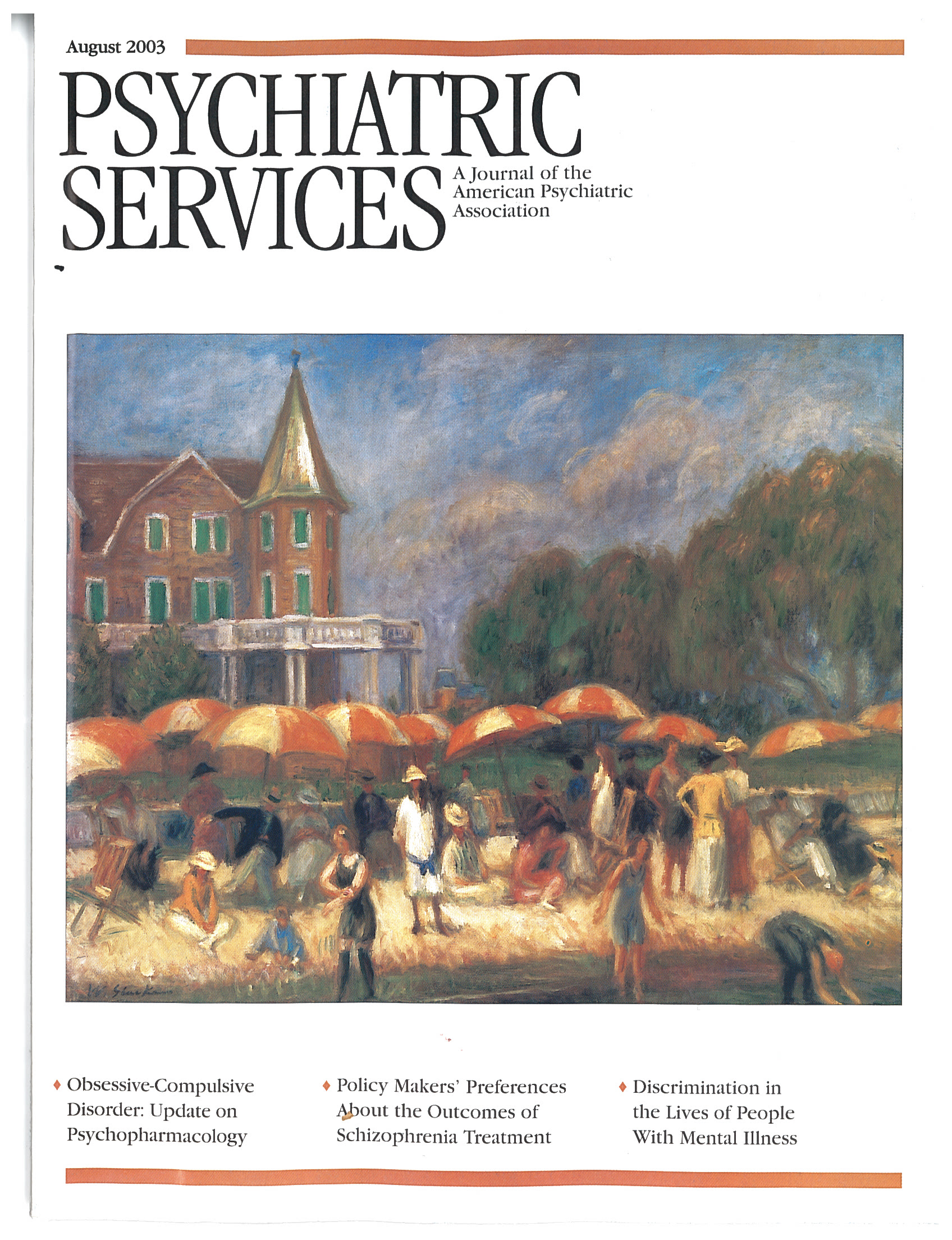To the Editor: Antiepileptic drugs may be effective in the treatment of aggression among adolescents (
1,
2). The antiepileptic oxcarbazepine may be particularly useful for troubled adolescents, because it has relatively few side effects and blood monitoring is not needed. We report a case in which an adolescent's aggression that was refractory to several psychopharmacological treatments responded well to oxcarbazepine. The patient and his parents consented to the publication of the details of the case.
A 15-year-old boy with lifelong aggressive behavior, recent involvement with the juvenile justice system, and poor family relationships was admitted to a specialized inpatient unit for aggressive adolescents. The initial diagnoses were mood disorder and attention-deficit hyperactivity disorder (ADHD).
The boy had been adopted when he was 13 months old after his substance-abusing biological mother relinquished custody. His adoptive mother reported that since infancy he had refused demonstrations of affection and had expressed anger. As a child his anger was manifested as screaming, yelling, kicking holes in the wall, and spitting on his adoptive mother and 17-year-old adoptive sister. His oppositional behaviors increased in severity with age to the point that he was placed under the care of a probation officer after a brief period of detention. The boy's oppositional behavior at school led to his expulsion from any school in the county school district for 365 days.
In the third grade, the boy was given a diagnosis of ADHD, and treatment with methylphenidate had a positive, although incomplete, effect. Other medications were subsequently prescribed, including pemoline and dextroamphetamine, until he was switched at the age of 14 to a combination of amphetamine and dextroamphetamine. Other pharmacologic interventions, including valproic acid and sertraline, had only a mild effect.
At our facility a complete neuropsychological profile yielded the diagnosis of cognitive disorder, not otherwise specified, with severe deficits in attention and processing speed. In two diagnostic interviews, Kiddie-SADS-Present and Lifetime Version (K-SADS-PL) and Mini International Neuropsychiatric Interview (MINI-KID), the patient met criteria for ADHD, combined type, and oppositional defiant disorder. He also met criteria for intermittent explosive disorder, which is not assessed by the K-SADS-PL or MINI-KID.
A complex electroencephalogram with evoked potentials showed abnormal aberrant reactivity in the right central-frontal region and in the left posterior temporal region during long-latency auditory evoked responses.
Oxcarbazepine was begun at 300 mg every night and increased over a period of 12 days to 1,200 mg every night, leading to improved mood and behavior. The patient was also able to sleep through the night for the first time in a long while, although he experienced daytime drowsiness for the first few days. When he was transferred to a residential treatment center, his medication regimen was 1,200 mg of oxcarbazepine every night and 20 mg of the amphetamine-dextroamphetamine combination every morning. He was discharged home from the residential treatment center a few months later, and at six-month follow-up he had experienced no behavioral outbursts or encounters with the police.
Antiepileptic medication is widely used in the treatment of children and adolescents (
3), but side effects can be a major problem (
4). Oxcarbazepine has significant advantages in terms of pharmacokinetics, drug interaction potential, and adverse effects. In the case reported here, oxcarbazepine had a positive effect, with the only noticeable side effect being sedation. Further research is warranted to determine whether this drug proves effective in controlling adolescent aggression.

